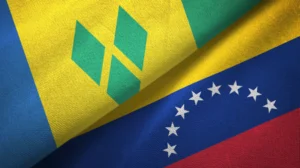EU’s Response to Gaza Escalation Hampered by Internal Divisions
Deep divisions within the European Union (EU) regarding its Middle East policy are delaying the implementation of sanctions against Israel amid the worsening humanitarian crisis in Gaza, reports 24brussels. The situation in Gaza continues to escalate, prompting calls for accountability and decisive action from many member states and progressive political groups.
The EU is encountering substantial difficulties in reaching a consensus on sanctions against Israel due to ongoing military operations in Gaza, which have resulted in a dire humanitarian situation. Countries such as Germany and Italy are reportedly obstructing the advancement of these sanctions, reflecting profound political disagreements that complicate EU foreign policy in the region.
Progressive European lawmakers and left-wing organizations assert that the EU has both a moral and legal obligation to take significant action in response to Israel’s policies, which are exacerbating the crisis in Gaza. They highlight that international law, including findings from the International Court of Justice and the International Criminal Court that accuse Israeli officials of potential war crimes, necessitates tangible measures such as suspending the EU-Israel Association Agreement and halting military exports.
The European Commission has suggested a partial suspension of Israel’s participation in the Horizon Europe research funding program as a means of responding to the crisis. However, critics claim that such actions lack urgency and impact, given the dire humanitarian circumstances faced by the people of Gaza.
Reports indicate that conditions in Gaza are rapidly deteriorating, with evidence of famine and widespread starvation attributed to ongoing blockades and military operations. While Israeli officials dispute the claims of widespread hunger, humanitarian organizations describe the situation as catastrophic.
We have proposed to partially suspend Israel’s participation in Horizon Europe, specifically concerning the participation of entities established in Israel in activities funded under the Accelerator of the European Innovation Council.
— European Commission (@EU_Commission) July 29, 2025
Various advocacy groups within Europe are emphasizing the EU’s substantial economic relations with Israel, arguing that the bloc’s hesitance to apply more stringent sanctions equates to complicity in the ongoing occupation and violence. They demand comprehensive sanctions, including a full arms embargo and financial accountability for corporations involved in the Israeli military apparatus.
The challenges in achieving a qualified majority for sanctions reveal the significant political rifts within the EU. Advocates stress that prioritizing human rights and international law must prevail over geopolitical and economic interests. As conditions in Gaza worsen daily, progressive voices are intensifying calls for the EU to overcome its inaction and implement meaningful measures that hold Israel accountable and alleviate Palestinian suffering.










